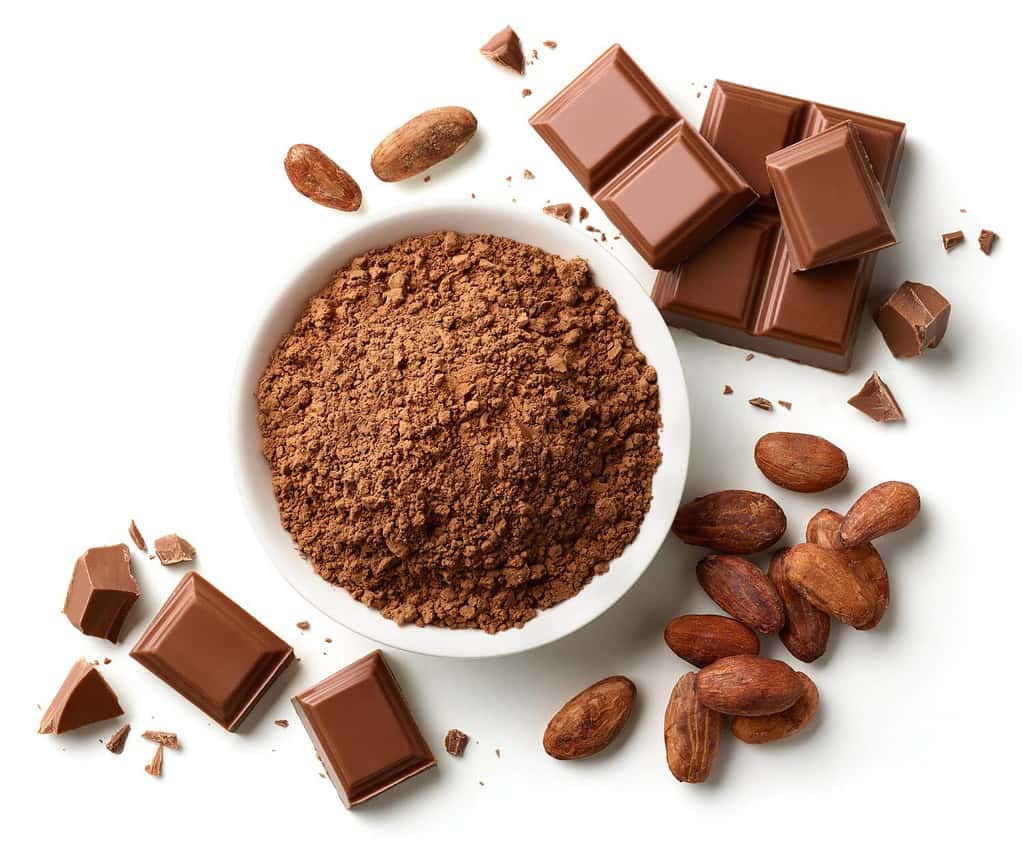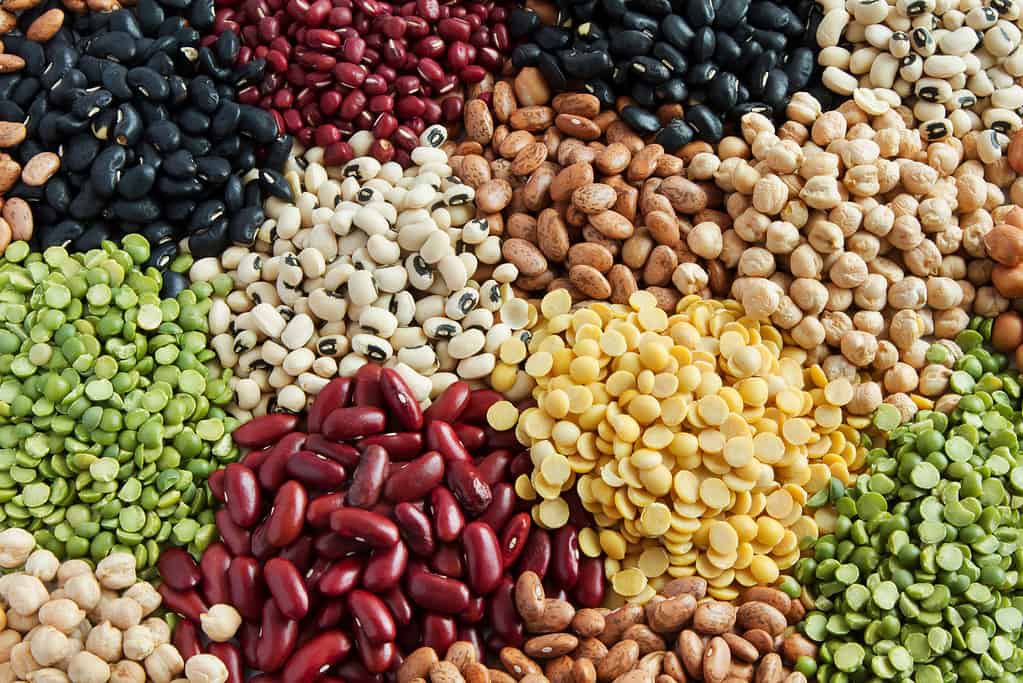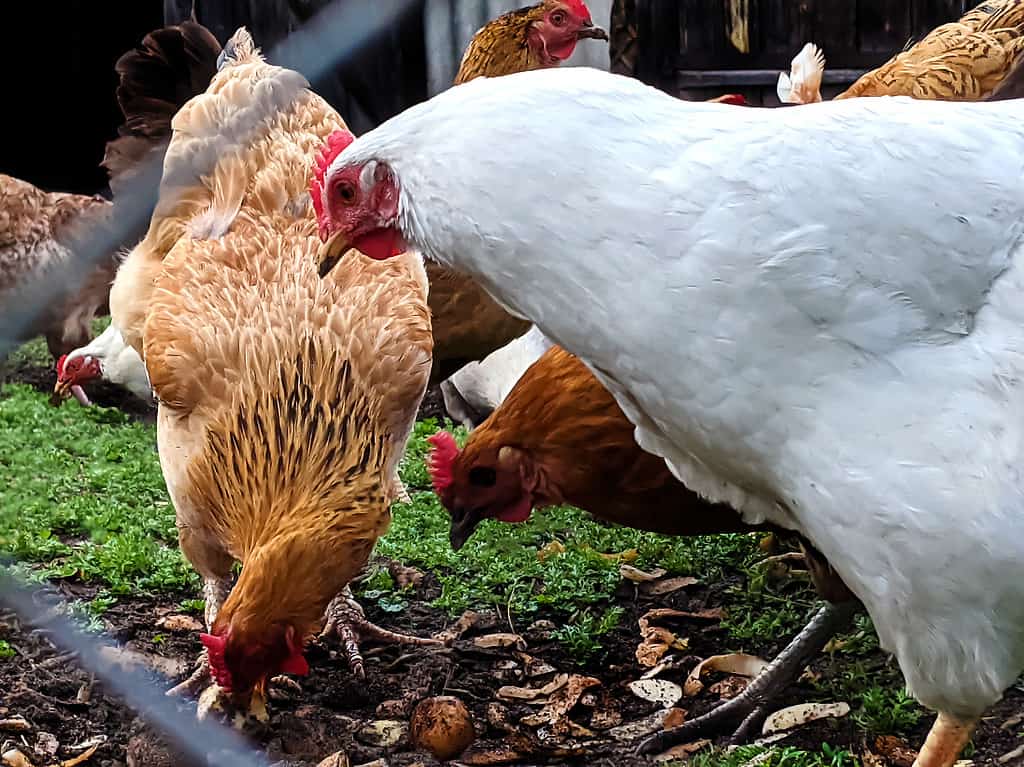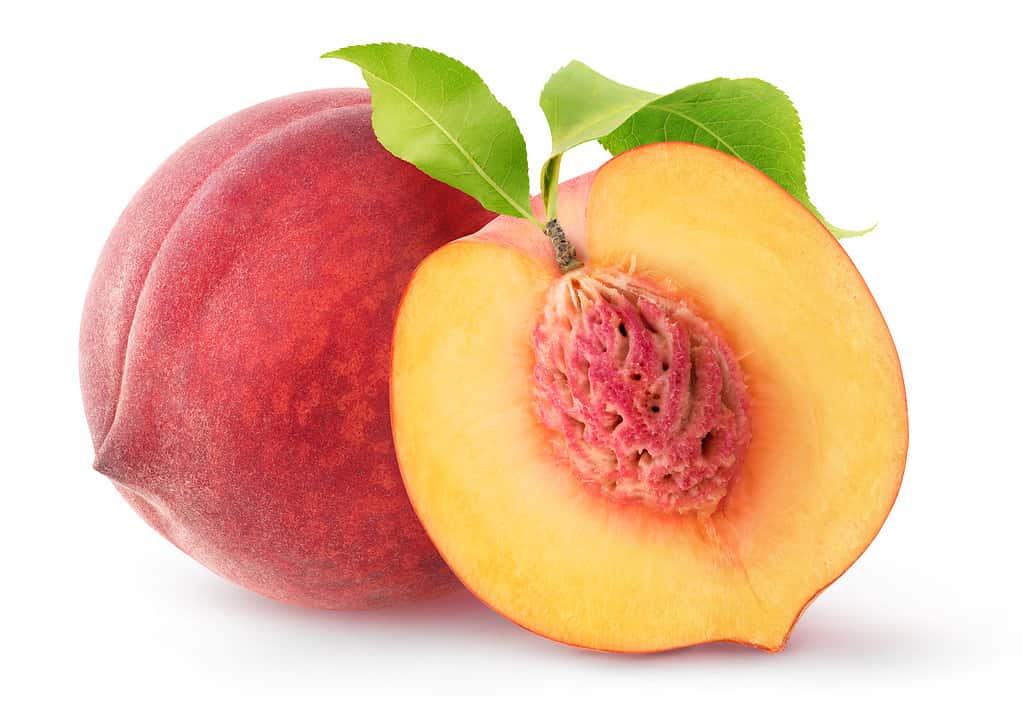Raising chickens should be an enjoyable and rewarding experience. If raised correctly, backyard chickens can not only produce top-quality eggs and meat but also give their owners lots of enjoyment and even companionship. Most chickens live about eight or nine years if cared for properly. One aspect of proper care includes learning what foods are safe for chickens and what foods may cause them harm. Chickens love treats, and as foraging omnivores, they eat a wide variety of foods. Unfortunately, though, some foods can make them sick or even kill them. Let’s take a look at some foods chickens should not eat. This list is not comprehensive.
Chocolate
Chocolate is not good for dogs, it is not good for cats, and it is definitely not good for chickens. Chocolate contains a pair of chemical stimulants derived from the cacao bean: theobromine and caffeine. Both of these can make chickens very sick or even kill them. They may cause vomiting and diarrhea, a rapid heart rate, and hyperactivity. Your chickens may also have tremors, seizures, or even suffer cardiac arrest. Chickens that consume chocolate may die within 24 hours. Chocolate is definitely one food chickens must not eat!

Chickens should never be fed chocolate.
©baibaz/Shutterstock.com
Caffeinated Beverages
Chickens are usually pretty alert and active during the daytime, and they certainly do not need an energy drink to give them wings. But just in case you need a good reason to refrain from sharing your coffee, soda, or other energy-laden beverage with your chickens, remember that caffeine is toxic to birds for all the reasons already stated above.
Dried or Raw Beans
Beans contain a toxin called phytohemagglutinin which is always fatal to poultry. Kidney beans contain the highest concentration of this deadly chemical. Consuming most types of beans, including black beans, pinto beans, and others can be fatal, too. As few as three or four beans can cause severe illness which progresses rapidly. No cure or treatment can save a bird that has consumed raw beans containing phytohemagglutinin. They will likely die in as little as one hour.

Some legumes are safe, but many raw or dried beans can kill chickens.
©iStock.com/piyaset
You can feed chickens canned beans, as they are thoroughly cooked before canning, but remember they usually contain a lot of salt, which can also pose problems. Cooking beans at a high temperature on the stove can also neutralize the deadly chemical and render them safe for chickens to consume. However, slow cookers do not elevate the temperature to the needed level to make this change. Some owners choose to err on the side of caution and avoid feeding their beloved chickens any beans at all.
Avocado Skin and Seeds
Chickens can safely eat the flesh of avocados, but the skin and the pit, along with the leaves, can poison them. These parts of avocados contain a toxin called persin, a long-chain compound similar to fatty acids. Persin, even in tiny amounts, can destroy the cells of the heart muscle in birds. Symptoms may include respiratory distress, weakness, and lethargy. Chickens that consume the toxic parts of an avocado may die within 12 to 24 hours.
Green Tomatoes
You may love a plate of fried green tomatoes, but they can poison chickens. Green tomatoes contain multiple chemicals including solanine, chaconine, and tomatine which can harm chickens. These glycoalkaloids, chemicals common in plants in the nightshade family, are found in green tomatoes. Solanine, in particular, causes drowsiness, which may be followed by paralysis and death. Ripened tomatoes are fine, but chickens must not eat any green parts of a tomato, cooked or raw.
Green Potatoes
Potatoes also belong to the nightshade family. They, too, contain solanine and chaconine, which can be deadly to chickens. Never feed chickens green potatoes, even the peels, as they can make your birds extremely ill or even kill them.

Chickens love potato peels, but green potatoes can be toxic.
©Dmitriy Prokofev/iStock via Getty Images
Stone Fruit Pits
While the flesh and skin of stone fruits such as peaches, apricots, plums, nectarines, and cherries make great treats for chickens, they should always have the pits removed. The pits of fruits from this family contain a compound called amygdalin. This chemical, in the presence of digestive enzymes, forms cyanide. The amount of amygdalin in these fruit pits cannot kill an adult human, but it may be lethal to a chicken. Cyanide poisoning may cause digestive issues, respiratory distress, and low blood pressure, possibly followed by complete organ failure and death.

The pits of stone fruits must be removed before offering the fruit to chickens.
©Anna Kucherova/Shutterstock.com
Apple and Pear Seeds
Apples and pears are safe and healthy treats for chickens, in moderation. However, the seeds of these fruits also contain amygdalin, which can form cyanide in the digestive system. A few seeds probably do not contain enough of the harmful chemical to make your birds sick, but too many could harm them. Make sure to remove the core before giving apples and pears to your chickens, just to be safe.
Rhubarb
Chickens should not eat rhubarb in excess amounts. This includes both its leaves and the stalk. Under certain conditions, rhubarb can have a fatally high concentration of oxalic acid. Oxalic acid can lead to diarrhea, vomiting, and respiratory problems. High amounts of oxalic acid can cause convulsions, renal failure, and potentially death in chickens. You might choose to feed your birds small amounts of rhubarb, but for many owners, this plant is one that they feel chickens should simply not eat.
Raw Poultry
Raw poultry can contain bacteria such as salmonella and campylobacter, which can easily infect your chickens. Although chickens are omnivorous, and they can eat bits of raw beef or pork as long as it is fresh and not overly processed, raw poultry is one food chickens should not eat.
Mold and Other Fungus
Mold and certain other types of fungi can make chickens very sick or even kill them. When deciding what to feed your chickens, especially when it comes to mold, ask yourself if you would eat it. If the answer is no, don’t give it to your chicken.
Mold that grows on fruits, vegetables, and even nuts can produce a deadly chemical called aflatoxin. This toxin may be fatal to chickens. Some mushrooms can prove fatal as well. Mushrooms that are safe for human consumption are also safe for chickens, but those that they find while foraging could harm them. Remove questionable mushrooms from foraging areas to be on the safe side.
Salty Foods
Chickens, like all animals, require at least some salt to maintain their electrolyte balance. However, too much salt can cause salt poisoning. Salty foods such as bacon or ham, potato chips, salted popcorn, some canned vegetables, and other offerings high in sodium are not safe for chickens to eat. Chickens suffering from salt poisoning may drink excessively leading to excessive urination, wet droppings, or diarrhea. Their abdomen may swell, and they may have trouble breathing. In extreme cases, chickens may die without emergency treatment.
Overly Processed Foods
Avoid feeding chickens overly processed foods. Anything too greasy, salty, or sweet can upset a chicken’s stomach and cause gastrointestinal problems. These foods can also lead to obesity. Some breeds, such as the Sussex chicken and the Cochin chicken, are naturally more prone to becoming overweight, so extra caution should be taken with birds like these. Obesity in chickens can also lead to heart disease and fatty liver hemorrhagic syndrome, which can shorten the lifespan of your birds.
When in Doubt, Throw It Out
Once again, this list of foods that chickens should not eat is not comprehensive, but it covers the most dangerous foods currently identified. Chickens are not garbage disposals; they are living creatures with specific nutritional needs. Treat them well and try to give them only foods that will support their health. If you have scraps you are not sure about, err on the side of caution. Talk to a local veterinarian or contact your nearest agricultural extension office if you have questions about whether a specific food is safe for your chickens to eat.
The photo featured at the top of this post is © Dmitriy Prokofev/iStock via Getty Images
Thank you for reading! Have some feedback for us? Contact the AZ Animals editorial team.







